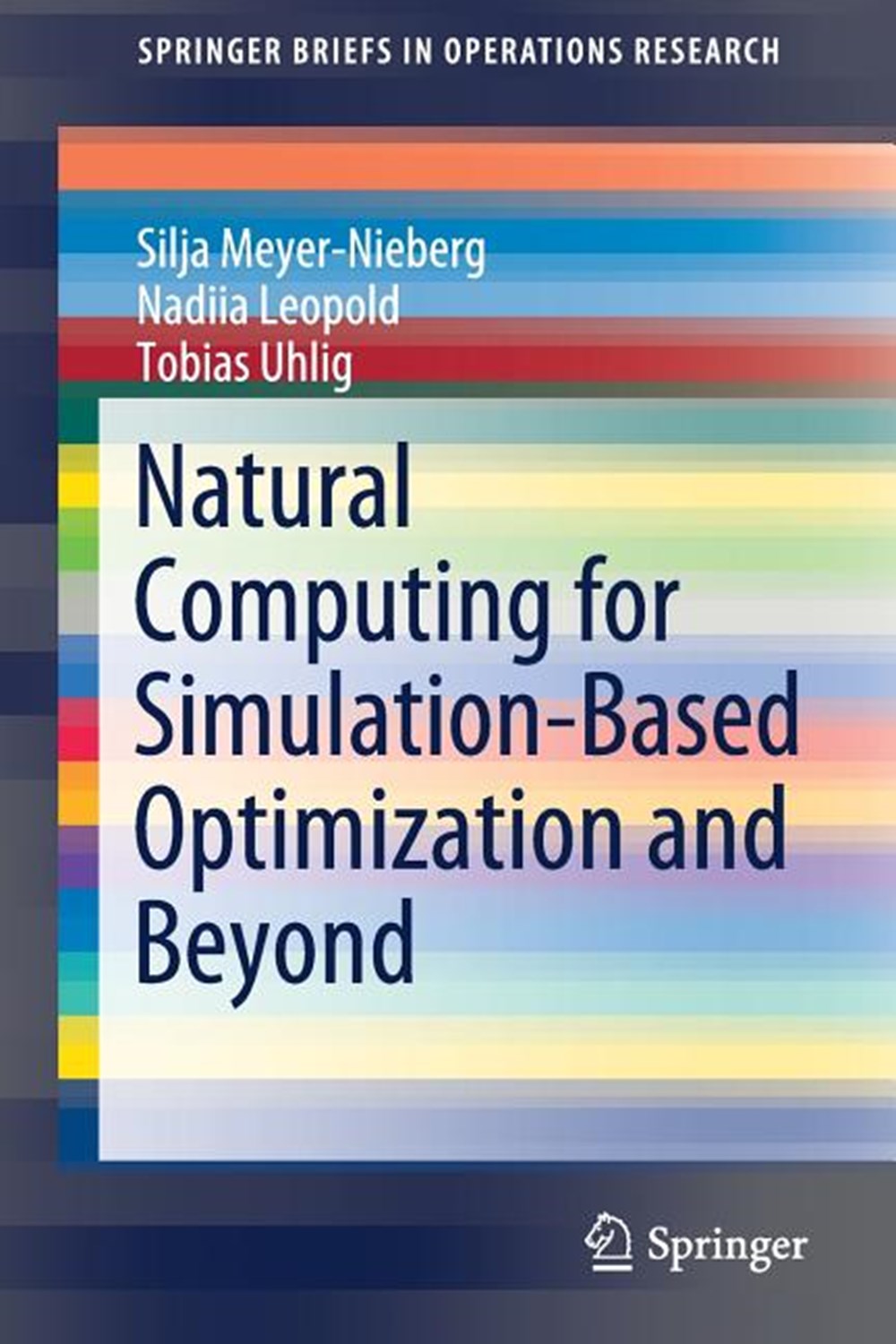
Natural Computing for Simulation-Based Optimization and Beyond (2020)
This SpringerBrief bridges the gap between the areas of simulation studies on the one hand, and optimization with natural computing on the other. Since natural computing methods have been applied with great success in several application areas, a review concerning potential benefits and pitfalls for simulation studies is merited.
| Quantity | Price | Discount |
|---|---|---|
| List Price | $59.99 |
Non-returnable discount pricing
$59.99
Book Information
| Publisher: | Springer |
|---|---|
| Publish Date: | 08/07/2019 |
| Pages: | 60 |
| ISBN-13: | 9783030262143 |
| ISBN-10: | 3030262146 |
| Language: | English |
Full Description
This SpringerBrief bridges the gap between the areas of simulation studies on the one hand, and optimization with natural computing on the other. Since natural computing methods have been applied with great success in several application areas, a review concerning potential benefits and pitfalls for simulation studies is merited. The brief presents such an overview and combines it with an introduction to natural computing and selected major approaches, as well as with a concise treatment of general simulation-based optimization. As such, it is the first review which covers both the methodological background and recent application cases.
The brief is intended to serve two purposes: First, it can be used to gain more information concerning natural computing, its major dialects, and their usage for simulation studies. It also covers the areas of multi-objective optimization and neuroevolution. While the latter is only seldom mentioned in connection withsimulation studies, it is a powerful potential technique. Second, the reader is provided with an overview of several areas of simulation-based optimization which range from logistic problems to engineering tasks. Additionally, the brief focuses on the usage of surrogate and meta-models. The brief presents recent application examples.
The brief is intended to serve two purposes: First, it can be used to gain more information concerning natural computing, its major dialects, and their usage for simulation studies. It also covers the areas of multi-objective optimization and neuroevolution. While the latter is only seldom mentioned in connection withsimulation studies, it is a powerful potential technique. Second, the reader is provided with an overview of several areas of simulation-based optimization which range from logistic problems to engineering tasks. Additionally, the brief focuses on the usage of surrogate and meta-models. The brief presents recent application examples.

